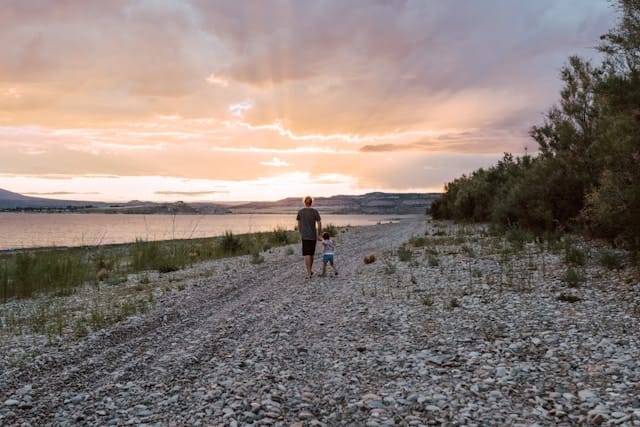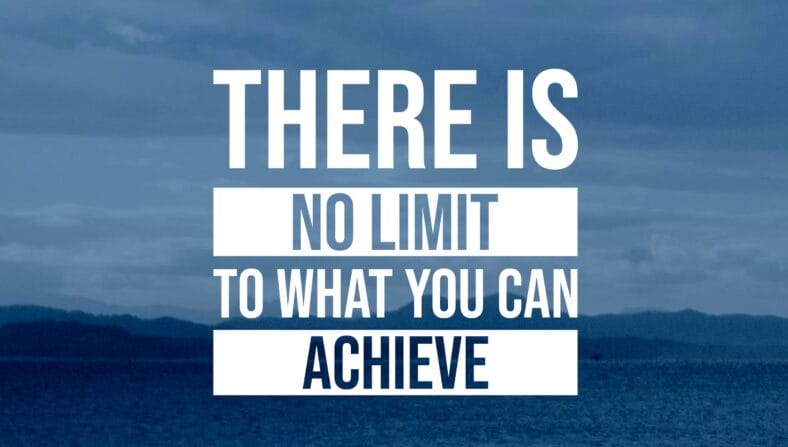10 Life Lessons Every Grandparent Should Pass On to Their Grandchildren

There are countless life lessons we’re told to pass on to future generations, from the value of family to the importance of being kind. While these are undeniably important, they often feel like clichés, easy to say but harder to put into practice in meaningful ways. When I think about the lessons that truly shaped my life, it’s the ones I had to learn the hard way that stand out the most.
These are the lessons I wish someone had taught me when I was young, lessons about resilience, gratitude, and balance that could have saved me years of struggle or regret. They’re not always the obvious ones, but they’re the ones I hope to pass on to my grandchildren, in the hope they’ll help them lead fuller, more fulfilling lives.
1. Learn to Apologize

Admitting when you’re wrong and sincerely apologizing are signs of strength, not weakness. I learned this the hard way. Over the years, my inability to apologize when I should have cost me friendships I valued deeply. Looking back, I realize that too often it’s easy to say or do something that causes grief, sometimes without even realizing it in the moment.
There’s certainly a time to stand up for what you believe in, and I still firmly hold that conviction. But there’s a difference between standing your ground on important matters and refusing to admit when you’ve made a mistake over something small or flexible in the grand scheme of things.
The lesson I would like to pass on is that apologizing doesn’t mean you’re weak or that you’re compromising your values. It means you care enough to put things into context and prioritize the relationship. By passing on this lesson, I hope my grandchildren will learn to recognize the power of a genuine apology and how it may save friendships (and family).
2. Be Resilient

When I was young, I was bullied, and it made me retreat into myself. Back in the 80s, we didn’t talk about depression or mental health as much as we rightfully do today. There was no internet or help, nor did the school have the tools or support to process what I was going through.
It wasn’t until I hit my mid-to-late teens that I came to a pivotal realization, I needed to stand up, no matter how many hits I took, and keep moving forward. It was a painful lesson, one I wish I hadn’t needed to learn in that way, but it taught me the value of resilience.
To this day, I believe resilience is one of the most valuable traits anyone can develop. Life will throw challenges at you, some small and some monumental, but being able to keep going is vital. Being resilient doesn’t mean pretending everything’s okay; it means acknowledging the struggle, facing it head-on, and finding the strength to keep going.
I want my grandchildren to know that no matter what life throws at them, they can get back up.
3. Never Stop Learning

In just my lifetime, the job ecosystem has evolved dramatically, and it will never stop evolving. There’s no guarantee that what you learn today will still be useful or relevant tomorrow. That’s why it’s so important to never stop learning.
I have a degree in Animation, and over the years, I’ve worked in the TV industry, the gaming industry, and even transitioned into roles centered on data and technology. Every year, I make it a goal to learn something new, and I do this for multiple reasons. One of those reasons is to keep my brain active, especially since dementia runs in my family. While I don’t believe lifelong learning will necessarily prevent the issue if I’m destined to face it, I know it helps keep me sharp in the meantime.
However, the main reason to never stop learning in my opinion, is to stay relevant and adaptable in an ever-changing world. By constantly learning, I’m not just trying to grow and evolve, but I’m staying curious about what’s out there.
This has been a vital life lesson for me, and one I hope to pass on.
Explore More: 7 Things You Should Negotiate Other Than Your Salary
4. Learn to Listen

Just like learning to apologize, learning to listen can be a massive life lesson, and one I failed at miserably until my late 30s. If I had listened better, I would have kept more friends, built stronger relationships, and cherished the last moments of connection with my mom before dementia took hold of her mind. While she’s still with us, the disease has robbed us of the conversations we used to have. Those missed opportunities to truly listen weigh heavily on me.
Taking the time to listen is about being fully present when being spoken to. It’s hard with technology grabbing every second of attention, but when you genuinely listen, you connect with people in a way that shows you value them. When you don’t hear what someone is trying to share, whether it’s their feelings, their wisdom, or their needs, it can lead to misunderstandings and regrets.
I’m hoping that by truly listening to my grandchildren as they grow up, I can demonstrate this life lesson and pass it on to them earlier in life, so they don’t have to make the same (or similar) mistakes as I did.
5. Work Hard, but Work Smart

For most of my 20s, I chased dreams with everything I had, working long hours and putting in endless effort. But the truth is, I wasn’t working smart, I was just working hard. I didn’t realize until my 30s that I was spinning my wheels without truly moving forward. By the time I began to understand what it meant to work smart, I was already a decade behind where many of my friends and family were in life.
I blamed part of this on the narrative I grew up with, that a college education would open all doors, and with a degree, I could achieve anything. While education is valuable, I’ve since learned that it’s only part of the equation. Hard work alone won’t get you where you want to go if it isn’t paired with clear goals, a good plan, and the ability to prioritize.
The truth is, I’m still figuring out how to work smart. It’s a lesson I’m learning every day. But what I do know is that once I understand how to be better at it, it’s a life lesson I’ll pass on to my grandchildren. After all, it has the potential to save them years of frustration and help them achieve their goals in life.
Also Read: 7 Things You Should Negotiate Other Than Your Salary
6. Don’t Be Afraid to Ask for Help

If someone had taken the time to tell me it was okay to ask for help when I was young, it could have changed my life at so many points. Asking for help feels vulnerable, and for a long time, I saw it as a sign of weakness, betrayal, and failure. That mindset didn’t just hurt me, it held me back.
Imparting this life lesson became a priority to me after seeing firsthand the devastating consequences of not reaching out. I know parents who lost a child to suicide, and it’s impossible to overstate the grief that comes with such a loss. I’ve also experienced the fear and heartbreak of having my own daughter struggle in similar ways. Thankfully, she found her way through, but it’s a harsh reminder of how crucial it is to seek support when you’re overwhelmed.
The truth is, no one can do everything alone. Whether it’s leaning on loved ones, confiding in a friend, or reaching out to a professional, asking for help is an act of courage. I want my grandchildren to know this.
7. Save and Spend Wisely

Some might think this is a life lesson that can wait until children become adults and start earning, but it’s not. Based on my own life experience, teaching the importance of saving and spending wisely from a young age can prevent a lifetime of financial missteps.
I’ve seen firsthand how not understanding savings or how to live within one’s means can lead to out-of-control behavior, whether it’s racking up debt, living paycheck to paycheck, or missing out on opportunities because of poor planning.
Alternatively, I’ve also seen how teaching kids to save for a reason, and to spend on the things they’re passionate about, can make a big difference as they grow up. Learning that saving doesn’t mean being miserly or denying yourself joy. It’s about being thoughtful with your money, so you can prioritize the experiences and goals that are most important to you.
By learning to live within their means and distinguish between what they want and what they need, young people can grow into financially stable, confident adults. It’s a lesson that can serve a lifetime and a lesson I wish someone taught me when I was young.
8. Appreciate the Simple Things

This wasn’t a lesson I was ever taught, but it’s one I’ve tried to pass down to my three kids, with varying degrees of success. Now, with my grandkids, I’ll try again. I may fail again, but I’ll keep trying because I wish someone had shown me the importance of appreciating the simple things in life when I was younger.
As you get older, you realize just how much joy and satisfaction can come from things you never noticed before. When I was younger, I often found short-term happiness in material things, tinkering with antiques or adding another item to a life-long collection. And while those moments were enjoyable, they pale in comparison to the gratification I feel when I spend time with the people I love.
Those simple, everyday moments, a laugh shared over dinner, a quiet walk with a loved one, or just being present during a family event to appreciate it, are what makes life truly worth living. Things will come and go, but the connections we build and the time we spend with others are priceless.
This is a lesson I hope my grandchildren learn earlier than I did, treasure the simple things, because they’re often the ones that bring the most lasting joy.
9. Pursue Your Passions

This doesn’t mean sacrificing your life or responsibilities for your passions, but it does mean keeping them or discovering new ones, throughout your life. Each day offers countless hours, and even if you can only dedicate an hour every few days to something you love, that time can bring fulfillment and keep that flame alive.
I’ve learned this lesson the hard way. In my younger years, I put my passions on a pedestal, prioritizing them above everything else and sacrificing other areas of my life in the process. As I got older, I realized I’d fallen behind in the areas needed to create a stable, balanced life, things like financial planning, personal growth, and relationships. Now, I feel like I’ve spent much of my adult life playing catch-up.
If I’d had a balanced approach earlier, one that blended the necessities of life with my passions, I might have been able to enjoy my passions more fully now.
This is why I want my grandchildren to understand the importance of balance. Your passions should never be abandoned or ignored; they bring you joy, creativity, and purpose. But they should also fit into a life that is stable and fulfilling in other ways. Having a balance is vital.
10. Be Thankful (Daily)

Life can be overwhelming, and everyone has their share of challenges. Some face more than others, but no matter what you’re up against, there are always things to be thankful for. If you can wake up, eat a meal, feel warmth, or experience love, then you have blessings worth acknowledging.
Sadly, I never looked at life this way when I was younger. I wasn’t ungrateful, and I didn’t feel sorry for myself, but I was so focused on being resilient, on putting hardships aside and pushing toward my passions and dreams, that I rarely stopped to reflect on what I already had.
Over the last decade, though, that perspective has shifted. Maybe it’s from raising children into adults or from watching loved ones get sick or move away. These experiences have shown me just how precious the present moment is and how much I have to be thankful for. Now, I thank God daily for the blessings in my life, big and small.
This wasn’t something taught to me growing up, and my home wasn’t religious. But I’ve come to see gratitude as a powerful trait that transcends religions. It’s a mindset that helps me find peace and appreciate life, no matter what’s being faced.
Hopefully, this is a life lesson I can pass down to my grandchildren, be thankful for what you have.
Explore More: Sea Salt vs. Table Salt: What’s the Difference?
Explore More About:Family and Relationships